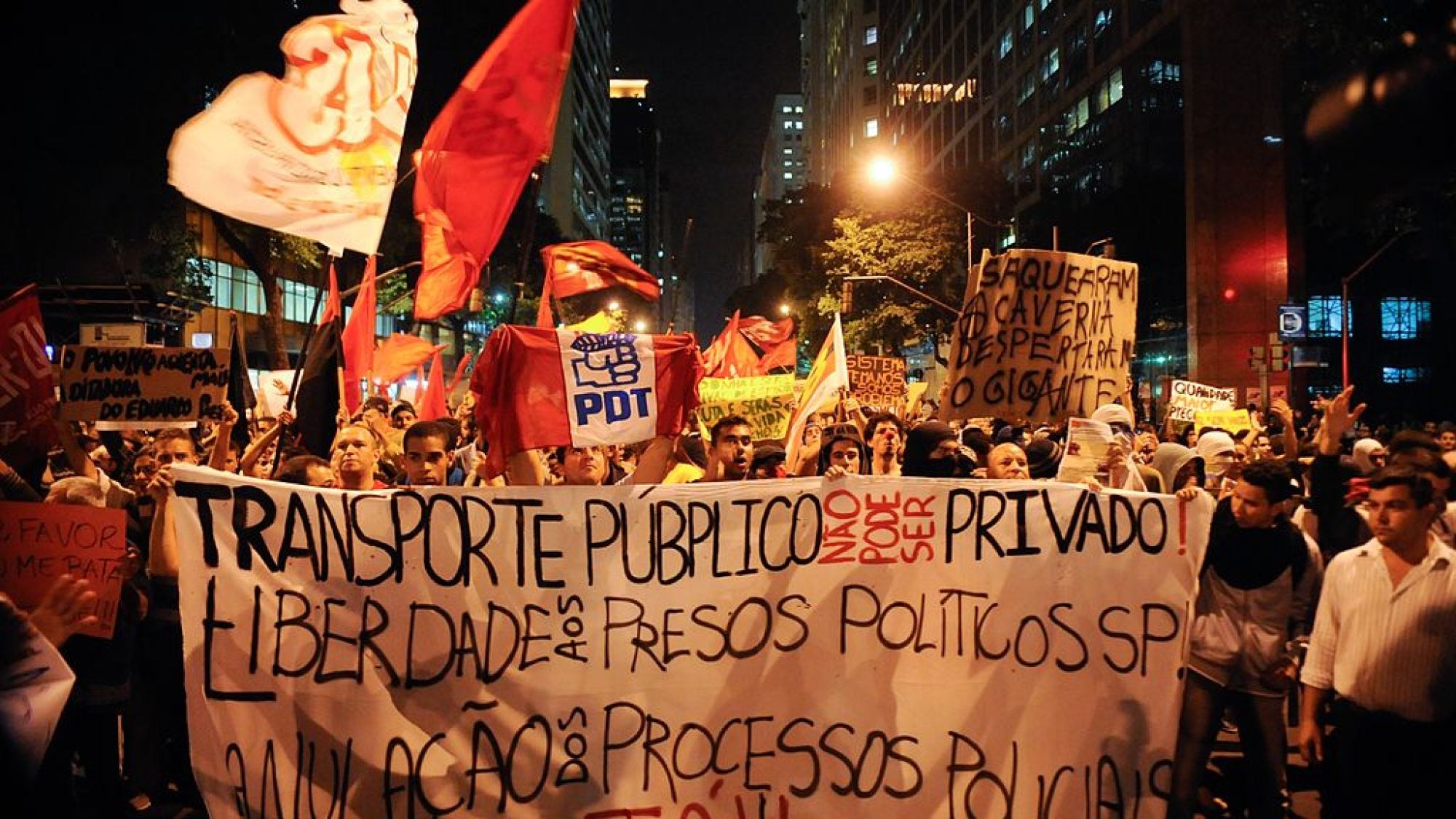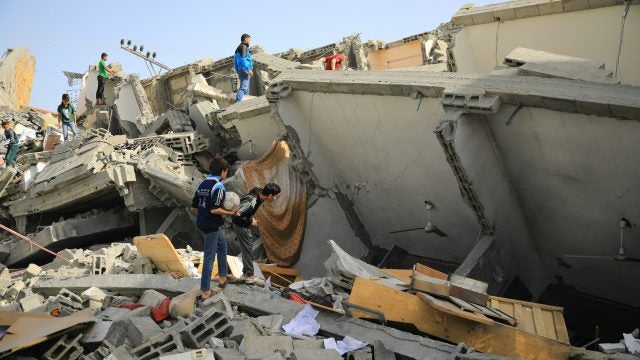
Title: ‘O Gigante Acordou’: Brazilian National Protests for Policy Reforms and Why They Matter
SÃO PAULO – On Thursday, 6 June 2013 on Avenida Paulista, one of the largest swaths of streets in the center of São Paulo’s financial district, a small group of people, mostly young people, with signs and banners in their hands, demanded a reduction of the twenty cent increase in prices of public transportation tickets. The people protesting were part of a movement called Movimento Passe Livre, which aimed to have free transportation for the people of São Paulo, Brazil’s largest city.
This was only the beginning of an outbreak of national protests against more than just the increase of bus and metro fares; droves of mostly middle-class Brazilians began to go to the streets in protest of the corruption in both the local and national government. Inflation has been rapidly increasing, creating a tight financial situation for Brazilians as they try to keep up with high taxes and public transportation costs simultaneously. Many Brazilians, both involved in the protests and supporting them from their homes, do not see improvements in public education, which has a shortage of trained professionals and adequate facilities. Their taxes do not seem to be contributing to health care either, given the severe shortage of public hospitals and the staff needed to attend to the needs of Brazilians who do not have access to private health care. Infrastructure remains dismal in parts of the country, although the stadiums for the World Cup and the Olympics are vastly improving.
But what is most remarkable about these protests? It is that they are happening at all. In a country that has seen waves of military dictatorships and fascism, many middle-class Brazilians have been hesitant to voice their discontent through droves of protests. At the demonstrations, one can feel how strongly the protesters feel about denouncing the government and asking for change. Brazil may be on the brink of a new democracy where citizens do not fear punishment from the government.
From 1889 until the 1980s, Brazil faced cycles of dictatorships until 1985, when democracy was restored to Brazil. Throughout this period, conflicts arose periodically, but the Brazilian public at large remained fairly quiet, choosing to hope for a change rather than going to the streets to demand it. Protests occurred during the dictatorship years, but punishment was more severe. Now, in a democracy, Brazilians have the right to create manifestations and express their malcontent openly and in vast numbers.
What has given Brazilians so much pride is not just demanding a less corrupt Brazil. Brazilian pride has also come from the fact that they are mobilizing as united civilians rather than at the prompting of defined leaders. Brazilians who have taken to the streets do not want Brazil to be known as just a country that is defined by soccer, Carnival, and tiny bikinis. The protesters are now demonstrating to create a country that would have more hospitals and medical services, a higher quality education system, and adequate infrastructure, amongst a myriad of other services to help Brazil further develop.
In fact, the demonstrations include many different political groups among the middle class, who have varying stakes in the protest. Although these groups may seem chaotic at times, organization and more talks of proposals have been developing. However, the most remarkable component as of now is not that organization and agendas are beginning to form; it is the sense of nationalism and mobilization joining both the middle and upper classes in Brazil. Rarely has Brazil seen an alliance between the middle and upper classes against a corrupt Leftist government, which, if the protests continue and leaders emerge, could lead to a new Brazil that would truly voice the opinions of Brazilians who are actually engaged in learning about national politics. In a country where voting is an obligation and there are many political parties, it is important that the people be aware of what each party stands for and how each party would help them. “O gigante acordou,” or “the giant awoke,” is one of the mottos for the national protests; Brazilians no longer want to accept the corruption within the Brazilian government, but rather they want to become informed, educate others, and show that, as a people, Brazilians are aware and want to change the corruption that has been running rampant in the government.
Under pressure from the protests, the Brazilian government voted against a bill to amend the Brazilian constitution within the week of 25 June 2013, called PEC 37, which would give the federal and civic police exclusive power to investigate criminal cases, not the Public Ministry (o Ministério Público), which represents the social interests of civilians. In another response to the protests, President Dilma Rousseff recently called for mayors and governors to meet immediately as part of an attempt to propose a referendum to the Constitution to vote in favor of political reforms. Power to amend the Constitution does not belong to an assembly of governors and mayors, but rather the Congress, which has more direct contact with the Brazilian population.
As of 28 June 2013, the government of São Paulo reduced the public transportation costs by twenty cents after a recent meeting with the Movimento Passe Livre. There is a massive city-wide strike by union laborers planned for 1 July 2013 in São Paulo.
Image Credit:Tânia Rêgo/ABr, CC BY 3.0 BR <https://creativecommons.org/licenses/by/3.0/br/deed.en>, via Wikimedia Commons
This is an archived article. While every effort is made to conserve hyperlinks and information, GJIA’s archived content sources online content between 2011 – 2019 which may no longer be accessible or correct.
More News

From the 1960s to the 1990s, the Danish government implemented the “Spiral Campaign,” a family planning policy that fitted four thousand and five hundred Inuit women and girls—many underage—with intrauterine…

This piece examines the UK government’s proscription of Palestine Action under the Terrorism Act, situating it within a broader trend of shrinking space for public dissent. It argues that the…

This article analyses the distortions of the International Humanitarian Law (IHL) notion of proportionality in the context of the Israel-Gaza war. It discusses Israel’s attempts to reinterpret proportionality to justify…